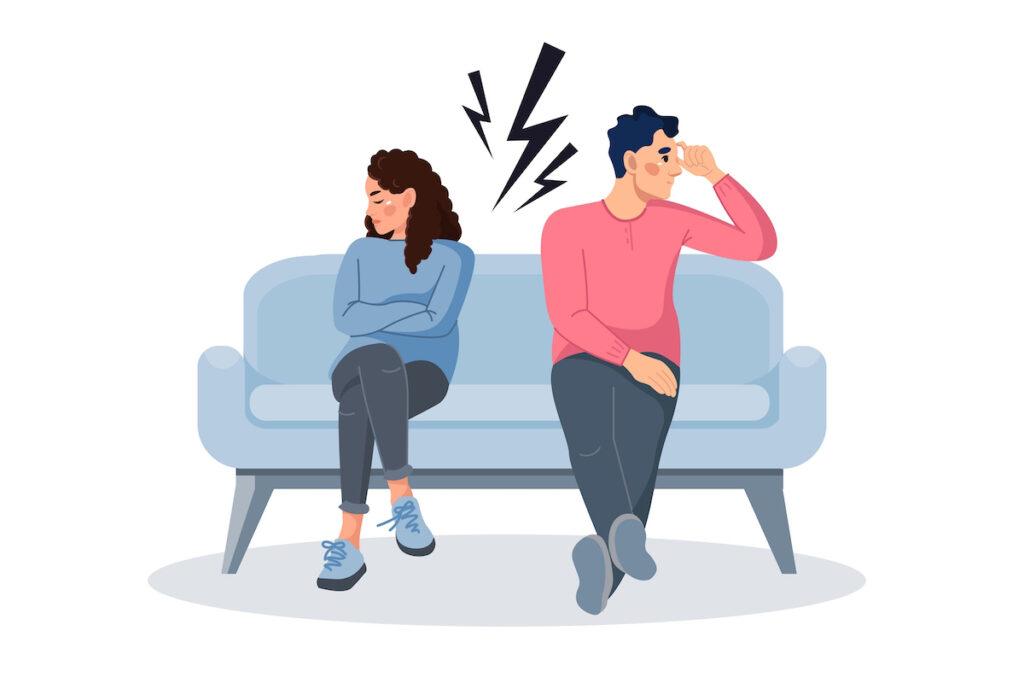Conflict in the mind, especially in interpersonal situations, can give rise to various emotional reactions.
One such reaction is non-assertiveness, where an individual struggles to express their needs, feelings, or opinions effectively. Conflict, Non-assertive behavior is characterized by avoiding confrontation and failing to stand up for oneself, often leading to feelings of frustration, resentment, and powerlessness.

Causes of Non-Assertive Reaction:
Low Self-Esteem: Individuals with low self-esteem may doubt their worth and fear rejection, leading them to avoid asserting themselves.
Fear of Conflict: The fear of confrontation and negative reactions from others can deter individuals from expressing their thoughts or needs assertively.
Desire to Please Others: People-pleasing tendencies can result in prioritizing others’ needs over their own, leading to non-assertive behavior.
Past Negative Experiences: Previous experiences of rejection or negative outcomes from assertive behavior may discourage individuals from expressing themselves.
Impact of Non-Assertive Behavior:
Non-assertive reactions can have significant consequences on personal well-being and relationships:
Increased Stress: Suppressing thoughts and feelings can lead to internal tension and stress, impacting mental and emotional health.
Unmet Needs: Non-assertiveness may lead to unfulfilled needs, as individuals fail to communicate what they require from others.
Resentment and Frustration: Over time, non-assertive individuals may feel increasingly resentful towards others for not meeting their needs, despite not having communicated them.
Communication Breakdown: Non-assertive behavior can lead to miscommunication also misunderstandings, hindering effective problem-solving and conflict resolution.
Overcoming Non-Assertiveness:
- Self-Awareness: Recognizing and understanding one’s non-assertive tendencies is the first step towards change.
Practice Assertiveness: Gradually practicing assertive communication in low-risk situations can build confidence.
Set Boundaries: Learning to set boundaries also expressing one’s limits and needs is crucial for assertive behavior.
Value Yourself: Recognize your worth and the importance of expressing your thoughts also feelings in healthy relationships.
Seeking Support:
Overcoming non-assertiveness may require support from friends, family, or professionals, such as counselors or therapists. They can provide guidance also encouragement throughout the process of building assertiveness and addressing underlying issues.
Conclusion
Conflict in the mind, leading to non-assertive reactions, can significantly impact personal well-being and relationships.
Acknowledging and addressing non-assertive tendencies is vital for fostering healthy communication, setting boundaries, also expressing one’s needs effectively.
Embracing assertiveness can empower individuals to navigate conflicts with confidence, fostering healthier relationships and a stronger sense of self. 온라인카지노사이트